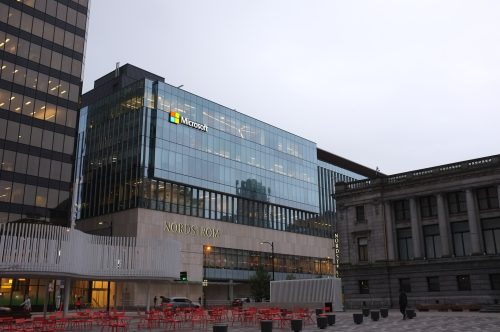Recent developments surrounding OpenAI, the company behind ChatGPT, have attracted the attention of the UK's Competition and Markets Authority (CMA), marking a new phase in the scrutiny of high-tech sectors. The CMA has initiated an investigation into the partnership between OpenAI and tech giant Microsoft, raising questions about potential anti-competitive practices and the impact on the evolving artificial intelligence (AI) market.
The investigation comes on the heels of the controversial sacking and subsequent reinstatement of OpenAI's CEO, Sam Altman. Following his dismissal, Altman quickly found a new role at Microsoft, which, in an unusual turn of events, lobbied for his reinstatement at his former company. Microsoft, as the largest investor in OpenAI's commercial arm with an investment of around $13 billion, plays a crucial role in the development and operation of OpenAI's AI models, serving as the exclusive supplier of cloud computing services.
The CMA's probe aims to determine whether the partnership between OpenAI and Microsoft amounts to a merger, triggering concerns about a potential substantial lessening of competition (SLC). Despite Microsoft's non-voting observer status on OpenAI's board, the investigation will examine the dynamics of the partnership, scrutinizing Microsoft's influence and any potential restrictions on the supply of cloud computing services to OpenAI's competitors.
The CMA's interest extends beyond traditional competition concerns to the broader impact on consumer choice and quality of services. OpenAI's development of general-purpose AI systems with applications in productivity software and search engines raises questions about Microsoft's ability and incentive to limit access to these systems for rival companies.
Further, this investigation by the CMA underscores the growing regulatory scrutiny of big tech and high-tech sectors globally. The CMA's Digital Markets Unit, established in 2021, has recently made impactful decisions, such as delaying Microsoft's acquisition of Activision Blizzard and ruling against Meta's acquisition of Giphy.
Regulating high-tech markets presents challenges due to their dynamic nature and the influence of powerful, globally present companies. The CMA's intervention in the OpenAI-Microsoft partnership indicates a proactive approach to shaping the development of the AI sector, preventing potential anti-competitive practices and ensuring a level playing field for companies in the burgeoning AI market.
The outcome of the investigation could lead to recommendations for altering OpenAI's ownership structure or operational practices. This move by the CMA aims to have a significant impact on the trajectory of OpenAI's growth and innovation, as well as shaping the broader landscape of the rapidly evolving AI sector.
























